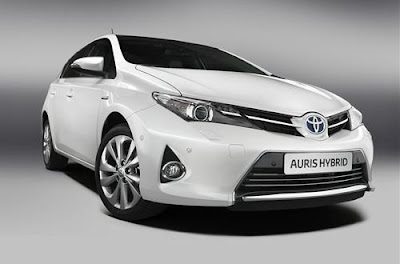Compared to the current version it has the same wheelbase and width but, at 4,275 mm (14’ 0”) from bumper to bumper, it’s 30 mm (about 1”) longer overall. However, contrary to the recent trend set by many of its C-segment competitors, the updated Auris is actually 55 mm (2”) lower than before.
Those changed dimensions have resulted in a more athletic stance, which has been emphasised by the use of some bold styling cues. The design works very well overall although, if the badges were covered up, it’s perhaps unlikely that many people would still be able to identify the car as a Toyota.
Two other important areas have benefited from the revised proportions. First is the cabin, which Toyota reckons now has a better driving position, a roomier backseat and an increased luggage capacity.
Second is the driving experience. Thanks to a lowered centre of gravity and a reduced ride height (as well as a stiffer bodyshell), it’s claimed that both the handling and ride comfort have been enhanced.
As before, three powertrain types are going to be offered: full hybrid with a 1.8 litre engine, petrol in either 1.33 or 1.6 litre displacements and diesel in either 1.4 or 2.0 litre form. Each category is expected to account for around one third of sales.
The 2013 Toyota Auris, which will be built at the Burnaston plant in the UK, is due to debut at next month’s Paris Motor Show. Prices have yet to be announced.
Related posts:
BMW is top car brand
Toyota RAV4 EV launched
Yaris Hybrid for Geneva





























0 Comments:
Post a Comment